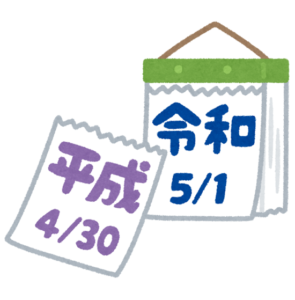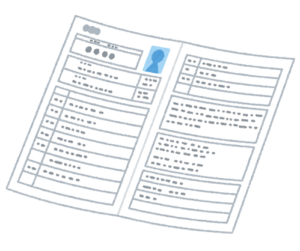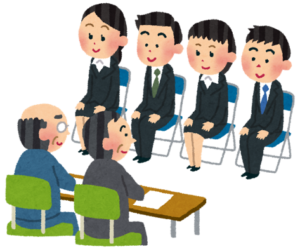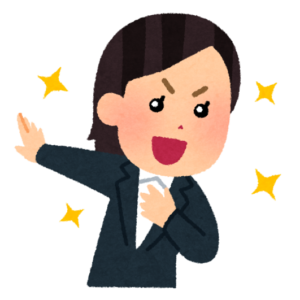Best of MUSUBI: From Study to Work, Just Like That!

Studying in Japan? Planning to Job Hunt? 10 Steps to Get You Started!
Top photo: Hunters Race on Unsplash
Welcome to Best of MUSUBI, where we revisit articles from the past to breath new life into them with updated information and photos!
Are you studying at University or a Japanese Language School in Japan? Looking to stay in the country once your studies conclude? Not sure how to move forward once graduation day comes and goes? Well you’re in luck! We here at MUSUBI have prepared a short guide to help you get started. Here’s our top 10 steps to put you on the right path towards a future career in Japan:
 1) Start early!
1) Start early!
Don’t wait until 1 month before you graduate or until you have already graduated! Secure employment while you are still studying. It usually takes a few weeks to get all the documents you need for your visa application.
Once your application is in, it usually takes at least a month to process a visa. This means, that unless you’re lucky, you can expect to wait around 2 months before you can work. This might be difficult if your visa expires close to your graduation date, so get a head start!
 2) Do the research!
2) Do the research!
What industry do you want to work in? What are the general job requirements? How much is the average salary for a new employee? Do foreigners typically receive a different salary from Japanese employees? Will you be on a contract or will you have seishain (‘regular employee’) status? What companies are reputable and which are the ones to avoid? Do all this research then prepare, especially if you don’t meet all the requirements!

3) Dress the part!
It might sound like common sense, but you would not believe the amount of people (both foreigners and Japanese alike) who don’t wear a proper suit to job interviews. Japan in particular is very picky about appearances, so dressing up is a must.
To add to this, don’t forget to print some business cards for purposes of job hunting. Sure, you may not have a job just yet, but when you do get to the interview/orientation stages it can really help make a good impression to your prospective employers.
Finally, now that you have a new suit, be sure to take a few passport-style photos of yourself in your new suit for use on your resume and job applications. These can be taken at any photo kiosk you see around. Often they are located near or in train stations.
 4) Prepare your resume- in English and Japanese
4) Prepare your resume- in English and Japanese
You never know what job you’re going to apply for, it’s better to have both an online copy and a hard copy of resume available to you in both English and Japanese. You can also adjust these easily in the future if you choose to change jobs later on rather than starting from scratch.
5) Initial Applications
Once you’ve got steps 2-4 ready, it’s time to begin the actual job hunting! Armed with the research you’ve done in step 2, apply to your first-choice companies directly if possible. Most companies in this day and age will have a “Careers” or “Recruiting” page with open positions. Sometimes, they may have an initial online application form to fill in before sending in your full resume, such as this one.
 6) Research job fairs
6) Research job fairs
Job fairs are easily the best way to look at jobs as it helps in-company recruiters get a gauge of your personality. You also have the opportunity to learn about individual companies and ask questions in preliminary interviews. You should also look at what job fairs will be in-person and which might be online.
 7) Networking
7) Networking
Now that you’ve been to job fairs and maybe made a few applications, network! There are plenty of career orientation social media websites out there. Go ahead and see if you can get in touch with any recruiters from any companies that have been contacting you actively. While you may not fit in their company, you never know when they might have friends in other companies who are looking for a candidate like yourself!
8) Contact Recruiters
Recruiters are another great way to find a job here in Japan. Often when you apply to companies directly you will need to jump through multiple hoops just to get your application in. With recruiters, depending on their reputation and relationship with each company you may be able to skip a few steps. However, be wary, depending on your individual recruiter your mileage may vary. Some just want to fill positions for the commission whereas some will really want to help you out as much as they can.
 9) Job Engines
9) Job Engines
Most foreigners living in Japan will most likely sign up for these as their first choice. Depending on what kind of job you are looking for, different job engines specialize in different types of industries.
10) Apply, apply, APPLY!
If you do use one of these engines, be sure to keep applying for different companies and keep a list!
Often when companies headhunt using these websites only a few details of your resume are visible, details such as e-mail addresses, parts of your work history will be hidden. These limitations are lifted typically once you’ve applied to a job on their platform.
 In addition to this starter guide, we recommend that you go further and look up each step and element individually. For example, what is the etiquette when handing an interviewer your business card? What is the etiquette needed when entering an interview room? What websites are more reputable? And so on. Especially when doing in-person interviews in Japan, it’s very important to know what to do and what not to do.
In addition to this starter guide, we recommend that you go further and look up each step and element individually. For example, what is the etiquette when handing an interviewer your business card? What is the etiquette needed when entering an interview room? What websites are more reputable? And so on. Especially when doing in-person interviews in Japan, it’s very important to know what to do and what not to do.
Furthermore, with the rise of remote interviews across Skype, Zoom and such, it’s important to remember that companies will still be looking for professionalism even if you aren’t in the same room as them. Find a nice, quiet space. Make sure your background isn’t distracting. Get dressed up. And always do a double-check of your microphone/webcam settings. Get in the habit of treating online interviews with the same seriousness that you would if you were going in person.
We hope that this starter guide has served its purpose and helped you gain a better picture of the application process here in Japan. We wish you the best of luck in your job hunt!
Photo Credits:
Top Image: Hunters Race on Unsplash
Additional photos provided by Irasutoya
All other content (text) created by the original author and © 2023 MUSUBI by Borderlink
RELATED
-

The Perfect Next Step
Top photo by Darklanlan , used under the Creative Commons CC0 1.0 Universal Public Domain Dedication. (CC0 1.0… -

Get Taught in Tokyo (and Beyond)
Top Photo: Louie Martinez on Unsplash If you are coming to Japan to be a teacher, prepare to be a student alon… -

The ALT’s Unexpected Journey to Japan
Top Photo: croissant.さん on PhotoAC “It’s a dangerous business… going out your door. You step onto the ro…
PEOPLE

John Lee
From Australia
Has experienced Japan for many years, and worked most of them!


